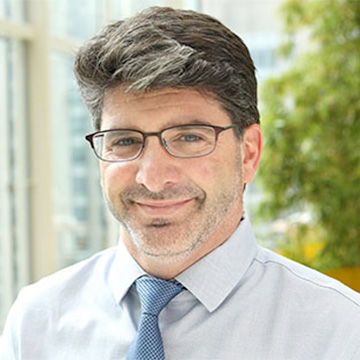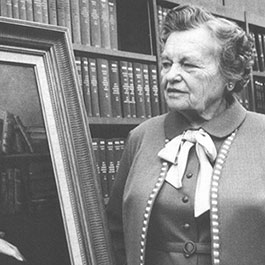Augusta Webster Faculty Funding
Augusta Webster faculty funding opportunities are open to Feinberg School of Medicine faculty as an opportunity for career development through investigator-proposed, innovative research projects and support for educational program development in health professions education fields. The Augusta Webster faculty funding program offers a 2-year fellowship program.
Augusta Webster Fellowship Program
The Augusta Webster Faculty Fellowship in Educational Research & Innovation aims to:
- Provide mentorship, support, and career development to junior faculty establishing careers focused on scholarship and research in education.
- Promote innovation in health professions education research.
- Serve as pilot funds to lead to future educational research and grants.
Application Process
The Augusta Webster Faculty Fellowship in Educational Research & Innovation is a two-year funding opportunity for faculty with a rank of no higher than Assistant Professor at the time of the application deadline. The goal of the program is to assist faculty new to the domain of health professions education. Awarded fellows will receive $50,000 of funding over the course of two years. Find more application details and fellowship eligibility requirements for the 2026-2028 application cycle here.
Applications will open in November 2025 for funding beginning September 1, 2026.
Application Requirements
Applications must be submitted via the online application form. Submitted materials should include:
- Descriptive title of proposed research
- Name, title, department, address, email, and telephone number for principal investigator applicant
- 250 word research abstract
- Names of other key personnel
- Brief description (~2 page, single space, 1” margins) of proposed research and methods with section headers: Approach, Feasibility, Innovation, and Potential Impact—and an optional section for those further into their career explaining why they should be considered (one paragraph).
- Number of years, estimated overall budget for each year and estimated percent effort for year.
- CV of primary investigator in the Northwestern University Feinberg School of Medicine format.
Selection & Decisions
The selection committee reviews applications and approximately five to six applicants will be invited to move into an eight-week, in person mentored proposal development program. Individuals accepted into the proposal development program must commit to a total of six hours of in-person meetings. Meeting days and times will be determined after selection is complete.
Final proposals for the two-year grant awarded are to be submitted at the end of the eight-week period. The committee will release final award decisions within four weeks following proposal submission.
Funding for selected projects will begin starting in September, every other year. Ongoing mentorship and support will continue during the fellowship.
Current Augusta Webster Faculty Fellows
2024-2026
Emily Hinchcliff, MD, MPH, Assistant Professor, Obstetrics and Gynecology (Gynecologic Oncology)
SAVE – Simulation Applications for Vaginal Hysterectomy Education
Lucas Bruton, MD, MEd, Instructor, Pediatrics (Advanced General Pediatrics and Primary Care)
ADEPT (Advancing Disability Education for Pediatric Trainees) Study: Creation of a Novel Tool for Assessment of Training Regarding Children with Medical Complexity
Rebecca Williams, MD, PhD, Assistant Professor, Surgery (Surgical Oncology)
Entrustable Professional Activities in general surgery residency training: Utilizing the Theoretical Domains Framework to create an Implementation Toolkit that can be used to identify barriers and facilitators to faculty engagement.
Previous Augusta Webster Faculty Fellows
2022-2024
Maheen Quadri, MD, Assistant Professor of Pediatrics (Advanced General Pediatrics and Primary Care)
iTreat: A Novel Curriculum to Improve Pediatric Residents’ Ability to Treat Mental Health Conditions in the Primary Care Setting
Nicholas R Zessis, MD, Assistant Professor of Pediatrics (Hospital-Based Medicine)
A Medical Student Mastery Learning Curriculum for Inpatient to Outpatient Handoffs
2020-2022
Sami Chaouki, MD, PhD, Assistant Professor of Pediatrics (Cardiology)
Mastery Learning Curriculum for Temporary Pacemaker Management
Leslie K Rydberg, MD, Assistant Professor of Physical Medicine and Rehabilitation and Medical Education
Mastery Learning in Electrodiagnostic Education
2018-2020
Kathryn K Hufmeyer, MD, Assistant Professor of Medicine (General Internal Medicine and Geriatrics)
Responsible Electronic Documentation: A Mastery Learning Curriculum to Improve Trainee Progress Note Writing Skills in the Electronic Health Record (EHR)
James M Walter, MD, Assistant Professor of Medicine (Pulmonary and Critical Care)
Development and Implementation of a Critical Care Ultrasound Mastery Learning Curriculum for Clinicians in the Medical Intensive Care Unit
2016-2018
Zarina S. Dohadwala, MD, Instructor of Pediatrics (Hospital-Based Medicine)
Development and Evaluation of an Innovative, Interactive Curriculum to Train Physicians to Address Vaccine Hesitant Families and Patients
Arika G. Gupta, MD, Assistant Professor of Pediatrics (Neonatology)
Mastery Learning of Neonatal Resuscitation Skills by Pediatric Residents Using Simulation Technology and Deliberate Practice
Bruce L. Henschen, MD, MPH, Assistant Professor of Medicine (General Internal Medicine and Geriatrics)
Can Medical Students, Acting as Health Coaches, Add Value to Primary Care and Improve Health Outcomes? Assessing the Clinical Impact of the Education-Centered Medical Home
2014-2016
Brigid M. Dolan, MD, Assistant Professor of Medicine (General Internal Medicine and Geriatrics)
A Qualitative Analysis of Pre-clerkship Student Portfolios to Assess Teamwork Skills and Attitudes
Bernice Ruo, MD, Assistant Professor of Medicine-General Internal Medicine and Geriatrics
Improving the Assessment of Internal Medicine Residents
2012-2013
Eric W. Schaefer, MD, Assistant Professor of Medicine (General Internal Medicine and Geriatrics)
Does a Faculty Development Project in Cardiac Auscultation Lead to Sustained Improvement in Cardiac Exam Skills for the Faculty, and does that Translate into an Improvement in the Cardiac Exam Skills of Medical Student Learners?
2012-2015
Shari L. Meyerson, MD, Associate Professor of Surgery (Thoracic Surgery) and Medicine (Pulmonary and Critical Care)
Utility of an Errors-Based Curriculum to Improve Advanced Skill Acquisition in Surgery
Rashmi K. Sharma, MD MHS, Assistant Professor in Medicine-Hospital Medicine
Developing and Evaluating a Mastery Learning Program for Code Status Discussion Skills
Mary E. McBride, MD, Assistant Professor of Pediatrics (Cardiology) and Medical Education
Teamwork and Communication in a Pediatric Cardiac Intensive Care Unit
2011-2014
Jennifer A. Bierman, MD, Associate Professor of Medicine (General Internal Medicine and Geriatrics) and Medical Education
Heather H. Heiman, MD, Associate Professor of Medicine (General Internal Medicine and Geriatrics) and Medical Education
Sonya Rasminsky, MD
Responsible Electronic Documentation (RED): A Needs Assessment and Curricular Intervention to Teach Medical Students Optimal Note Writing Skills Using the Electronic Health Record
Debra A. DaRosa, PhD, Professor Emeritus of Surgery
Validity Evidence for a Competency Based Resident OR Instruction and Assessment System
David H. Salzman, MD, MEd, Assistant Professor of Emergency Medicine and Medical Education
Assessment of Medical Student Achievement: Development of Simulation-Based Gateway Examinations for Implementation in the Feinberg School of Medicine Curriculum Renewal
2009-2011
Daniel B. Evans, MD, Assistant Professor of Medicine (General Internal Medicine and Geriatrics)
Web-based Education for Beginning interns on Handoffs (WEB-Handoffs)
Marianne Tschoe, MD, Assistant Professor of Medicine (Hospital Medicine)
Improving Hospitalist Teaching Skills
Donna M. Woods, PhD, Associate Professor of Pediatrics
Achieving Patient Safety Competence in Medicine: Testing Methods for Patient Safety Education and Evaluation
Heron E. Rodriguez, MD, Associate Professor of Surgery (Vascular Surgery) and Radiology
An Engineered-Designed Time-Management System for Prioritizing and Actualizing Resident Clinical Learning Activities Based Upon Curriculum Goals and Objectives
Eytan Szmuilowicz, MD, Associate Professor of Medicine (Hospital Medicine)
Development and Assessment of a Palliative Care Curriculum for Hospital Medicine Physicians
2007-2009
Melissa Brannen, MD
Using Simulation to Teach Leadership Skills to Pediatric Fellows
Christine Park, MD
Training and Assessing Novice Anesthesiology Resident Competencies Using a Simulation-Based Curriculum
2006-2009
Larry R. Cochard, PhD, Associate Professor of Medical Education and Cell and Molecular Biology
Lori A. Goodhartz, MD, Associate Professor of Radiology
A Website for the Integration of Radiology and Radiographic Anatomy in the First Two Years of the Curriculum at the Feinberg School of Medicine
Jon W. Lomasney, MD, Associate Professor of Pathology and Pharmacology
Second Year Medical School Teaching-Learning Initiative
2006-2008
Jeffrey H Barsuk, MD, Professor of Medicine (Hospital Medicine) and Medical Education
Use of Simulation Technology to Assess and Improve the Proficiency of Internal Medicine Trainees in Central Line Insertion
Alice Salzman, PT, EdD, Assistant Professor of Physical Therapy and Human Movement Sciences
Analysis of a Summative Cross-Course Examination Using Standardized Patients and Creation of a Process to Develop Additional Cross-Course Evaluations
2005-2008
Lee A. Lindquist, MD, MPH, MBA, Associate Professor of Medicine (General Internal Medicine and Geriatrics)
Geriatrics Immersion Program for First Year Medical Students to Improve the Care of Elderly Patients
Peter Pang, MD
Curriculum Re-Design Focused on Systems-Based Practice to Improve Patient Safety and Quality
Nancy Schindler, MD
Collaborative On-Line Learning Modules (COLM)
2005-2007
Patricia M. Garcia, MD, MPH, Associate Dean for Curriculum, Professor of Obstetrics and Gynecology (Maternal Fetal Medicine) and Medical Education
Integration and Assessment of Computer-Facilitated Group Learning and Digital Cases in the PBL Curriculum
Carla Pugh, MD, PhD
Evaluating Potential Uses of Simulation Technology in Teaching and Assessing Hands-On Technical Skills
2002-2004
Douglas Reifler, MD
2000-2002
Angela Nuzzarello, MD, MHPE
1997-2000
Robert M. Golub, MD, Associate Professor of Medicine (General Internal Medicine and Geriatrics) and Preventive Medicine
1992-1994
Rowland W. Chang, MD, MPH, Professor of Preventive Medicine (Epidemiology),Medicine (Rheumatology) and Physical Medicine and Rehabilitation
1991-1993
Raymond H. Curry, MD
Carl Waltenbaugh, PhD
Contact Us

Mark D Adler, MD
Director of the Augusta Webster Fellowship Program
Professor of Pediatrics (Emergency Medicine) and Medical Education
About Augusta Webster, MD
Dr. Augusta Webster, a member of Northwestern's Class of 1934, was the first woman to be named a full professor at the medical school and in 1960 became the first woman in the country to head a department at a major teaching hospital - the Obstetrics & Gynecology Department at Cook County Hospital. It was at "the County" that she earned her fame as a teacher of medical students and obstetrical residents, and as a dedicated physician and friend to the medically underserved people of Chicago. After internship and residency at Passavant Memorial Hospital, she practiced at Cook County Hospital for over 40 years, including 15 years of non-salaried service.
At "the County," Dr. Webster introduced the first nurse midwife program in Illinois in 1970. She was a founder of the American College of Obstetrics and Gynecology, and of the Portes Cancer Prevention Center. Among her accolades, in 1948, she received the Alumni Medial of Northwestern University, and in 1954, she was named "Woman of the Year" by the American Medical Women's Association.
In 1991, a generous gift by Barbara Olin Taylor, PhD, created the Augusta Webster Faculty Fellowships in Medical Education in Dr. Webster's honor, with the intent of fostering the career development of innovative health professions educators.